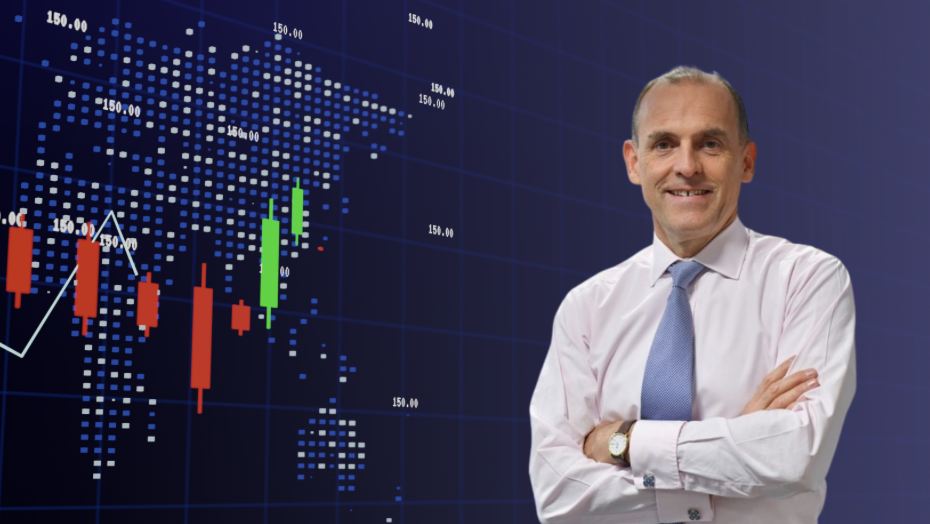Tandem Bank Chairman Paul Pester is optimistic about the potential of AI and open banking to improve transparency and increase access to advisory tools.
The way we handle money is about to be radically reimagined. Two powerful forces — artificial intelligence and open banking — are converging, and they could shake up consumer finance like nothing we’ve seen since the dawn of the internet era, says Paul Pester, chairman of Tandem Bank.
He envisions “another innovation in competition and technology in financial services as big as the dot-com boom,” stemming from the combination of large language models, fintech apps, and open banking policies that have the potential to democratise access to financial advice and tools for a younger generation looking to establish credit and get involved in investing.
“It will enable businesses to build another intelligence layer that yet again sits on top of the banks, sits on top of the financial services providers, very much like the price comparison websites did at the turn of the century,” Pester adds.
AI Financial Advisers
What could this look like? Imagine having a personalised digital money manager on your smartphone, an AI assistant that understands your unique spending patterns, financial goals, and life situation and uses that information to provide tailored budgeting advice and money management strategies.
“I think we’re going to see AI-driven advisers looking across the consumer’s behaviour and accounts and actively managing their money for them,” says Pester.
The hope is that LLMs can comprehend intricate personal finances with depth and nuance, then engage in fluent dialogue to counsel users accordingly.
No longer would customised financial advice and insight into optimising personal finance and investment be limited to those who can afford pricey human experts. A 22-year-old working their first job out of college could leverage AI and open banking just as easily as a seasoned Wall Street trader.
“In the U.K. we are seeing a higher propensity to invest in younger customers. There’s more interest in investment products, more interest in equities, more interest in finding a way, even taking very small amounts of money to build investments,” says Pester.
“Generation Zs and millennials appear much more interested [than older generations], but they don’t have a lot of money to invest,” he continues. “It’s why technology is so important, because they can’t pay to have an individual adviser sitting down with them, talking them through what’s right. It’s all technology based, but it is democratising access to investments, and I think that’s a really positive and interesting trend.”
Open Banking and Democratising Data
The other key piece in this push to democratise finance is open banking, a set of policies that enables consumers to share their financial data safely with third-party apps.
In practice, this could mean apps that provide a unified dashboard across all of a user’s various bank accounts, credit cards, investments, and the like — eliminating the hassle of juggling different logins and statements and providing a clear picture of how you’re spending your money. Open banking could also enable services that securely share your money flow and repayment history to help build credit and qualify for loans.
“The internet enabled price discovery, but open banking enables consumers to get even with the bank in accessing information and getting better deals,” argues Pester, a digital banking veteran whose experience includes leading the launch of Virgin Money, running TSB Bank, and serving as an adviser to the Chancellor of the Exchequer and HM Treasury on competition in banking prior to taking on his current role at Tandem.
Nowhere could this transformation have a bigger impact than among younger generations and lower-income consumers who have traditionally lacked access to sophisticated money management tools available for the wealthy.
While AI promises to democratise financial advisory services, open banking could democratise access to financial instruments and credit markets themselves.
For younger generations and individuals with limited credit histories, open banking could provide a pathway to establishing creditworthiness and accessing financial products that were previously out of reach. Paul Pester cited the example of Loop, a fintech app he co-founded in 2021 that enables friends and family to lend small amounts to one another, creating a digital trail of repayment behaviour.
“Loop builds a credit file which you can then export to a bank,” Pester explains. “You can say, OK, well I’ve never borrowed from a bank before, but I may have two, three, four, five years’ worth of evidence here that I’ve borrowed from a friend a hundred times or borrowed from family, and I’ve always repaid it on time.’ That’s exactly the data that banks need to help make informed decisions.”
The Convergence of AI and Open Banking
While AI and open banking offer distinct advantages, their true potential could be realised through convergence and seamless integration. Combining the personalised insights of AI-driven advisers with the data portability and transparency afforded by open banking could lead to a new paradigm of consumer-first financial services.
We could see a future where an AI-powered digital assistant not only analyses your financial data but also integrates with open banking platforms to provide a holistic view of your financial life. This assistant could proactively identify opportunities for cost savings, debt consolidation, or optimised investment strategies and even initiate transactions or negotiate better rates on your behalf, all while ensuring data privacy and security.
Of course, challenges lie ahead in areas like data privacy, fairness in algorithmic decision-making, navigating a patchwork of evolving open banking regulations, and building consumer trust.
Yet Paul Pester is bullish that this convergence of AI and open data represents a personal finance revolution whose time has come.
“It’s just a matter of time as data and as innovation and technology allows new competitors to enter markets,” he says. “I think we’re going to see this benefit consumers in tangible ways very soon.”



